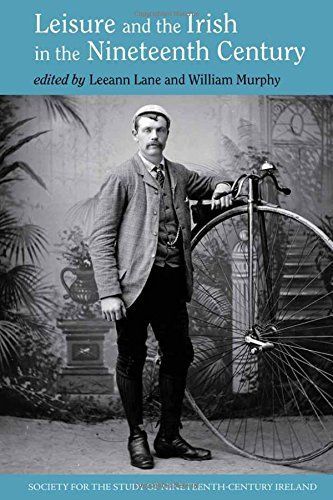
Leisure and the Irish in the Nineteenth Century
It has often been argued that 'modern' leisure was born in the period from the mid-nineteenth century to the outbreak of World War One. Then, it has been suggested, that if leisure was not 'invented' its forms and meanings changed. Despite the recent expansion of the literature on Irish popular cultures - perhaps most strikingly sport - the conceptions, purposes, and practical manifestations of leisure among the Irish during this critical period have yet to receive the attention they deserve. This collection represents an attempt to address this. In twelve essays that explore vibrant expressions of associational culture, the emergence of new leisure spaces, literary manifestations and representations of leisure, the pleasures and purposes of travel, and the leisure pursuits of elite women the collection offers a variety of perspectives on the volume's theme. As becomes apparent in these studies, all manner of activity, from music to football, reading to dining, travel to photography, dancing to dining, visiting to cycling, child's play to fighting and attitudes to these were shaped not just by the drive to pleasure but by ideas of class, respectability, improvement and social control as well as political, social, educational, medical and religious ideologies.